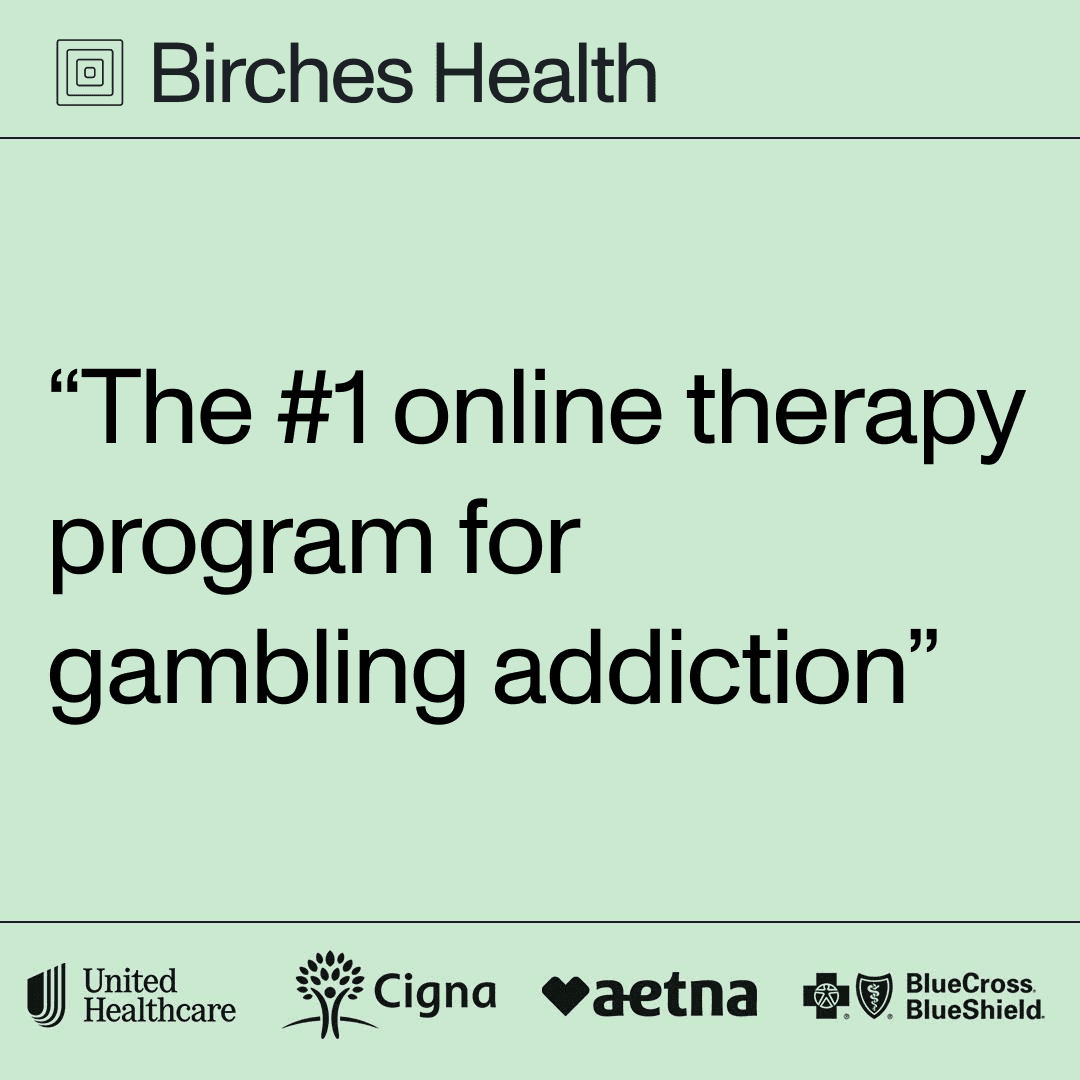Dangers of Offshore Sportsbooks: States Cracking Down
Published:
Jun 28, 2024
,
11:23 a.m.
ET
Updated:
Dec 4, 2024
,
01:24 p.m.
ET
Offshore sportsbooks, typically based in places like Antigua, Costa Rica, Panama, Curaçao and Latvia, are used by thousands of U.S. sports bettors, especially in the 12 states where legal sports betting is unavailable, such as California, Texas and Georgia. However, the risks associated with using these unregulated platforms far outweigh any perceived benefits. And now some states are taking significant steps to crack down on these illegal operators to protect consumers and ensure a fair betting ecosystem.
In this article, we’ll review the specific dangers of offshore sportsbooks, what makes their services popular, why states have begun cracking down on them and resources to combat Gambling Addiction.
Worried about your, a friend's or a loved one's gambling? Reach out to Birches Health today
What are offshore sportsbooks? How popular are they?
Offshore sportsbooks are unregulated online sports betting platforms that operate outside of U.S. borders. Despite being illegal, offshore operators continue to target and successfully attract Americans. Without needing to follow regulations set by state governments (like regulated sportsbooks do), offshore books oftentimes offer a broader range of betting options, such as novelty props, plus also allow bettors to wager using credit instead of needing to deposit before betting.
Since the U.S. Supreme Court’s repeal of the Professional and Amateur Sports Protection Act (PASPA) in May 2018, sports betting has seen a surge in popularity. The Supreme Court’s ruling essentially made the legalization and regulation of sports betting a state-specific decision. States have put rigorous licensing protocols into practice, requiring sportsbooks to undergo an extensive vetting and application process to uphold gaming integrity and consumer safety. Offshore sportsbook operators bypass these regulations, thus making them illegal yet at times appealing to some U.S. bettors.
A big hope in the post-PASPA world was that the regulated sports betting industry would lead to the shrinking and eventual disappearance of the offshore market, as bettors transitioned to legal sportsbooks in states that offer them. However, a 2022 AGA study estimated that Americans still wager $63.8 billion annually with illegal bookies and offshore sites.

States cracking down on unregulated, offshore operators
The prevalence of offshore sportsbooks in the U.S. is undeniable. In the face of persistent allure, multiple states have intensified efforts to crack down on unregulated gaming entities. With the protection of consumers and fair play practices top of mind, some states have started to take action.
Made public on May 4, 2024, a coalition of seven state gaming regulatory bodies (Colorado, Nevada, New Jersey, Michigan, Illinois, Louisiana and Mississippi) called on the U.S. Department of Justice to prioritize the crackdown on illegal offshore sportsbooks and online casinos. The coalition’s primary motivations include consumer protection, responsible gaming measures and recouping billions in lost tax revenue.
On May 30, 2024, the Michigan Gaming Control Board (MGCB) issued a cease-and-desist letter to Harp Media, the operator of popular offshore online gaming site Bovada. The letter came following an investigation that revealed the site’s accessibility to Michigan residents, violating state gaming laws. Shortly thereafter, on June 14, Connecticut issued their own cease-and-desist letter to Harp Media.
Michigan became the seventh state to block the betting platform, and Connecticut is in the process of becoming the eighth. These moves underscore state commitment to safeguarding residents from the risk associated with unregulated betting platforms.
UPDATE 9/18/24: Bovada has now also restricted access in Kansas, Louisiana, and Pennsylvania, all of which sent cease-and-desist letters.
UPDATE 12/4/24: Arizona has also now been added to Bovada's list of states in which they do not operate after receiving a cease-and-desist letter from the Department of Gaming in November 2024. That brings the number of states banning the offshore sportsbook to 15, plus Washington, D.C.
Risks and dangers of offshore sportsbooks
Engaging with offshore sportsbooks comes with numerous risks. Here are some key concerns:
Unusual Funding Options: Offshore sportsbooks often require funding with cryptocurrencies or unfamiliar e-wallets.
No Licensing & Oversight: Offshore sportsbooks operate without compliance with U.S. regulatory bodies. If an offshore book refuses to pay winnings or blocks withdrawals, bettors have no authorities or customer service to turn to for help. Bettors are not guaranteed to receive their winnings on time, or at all, as many bettors have learned the hard way over the years.
Absence of Player Protection: Without responsible gaming measures, there are no mechanisms for account restraint. Offshore operators do nothing for consumers who are at risk for Gambling Addiction. Furthermore, with lack of security concerning personal data, users are left vulnerable to identity theft and fraud.
Betting on Credit: Some offshore sportsbooks and illegal new-age “bookies” allow bettors to use pre-loaded credit for wagering. Therefore, for many users it doesn’t feel like their own real money that they’re risking. That is, until they must settle their debts and may suddenly owe much more than they expected or can afford.
Tax Evasion: If detected by tax authorities, untaxed winnings from offshore sportsbooks can lead to severe consequences, constituting tax evasion.
Offshore Sportsbooks are illegal: Point blank, bettors risk legal repercussions when they engage with offshore sportsbooks, which can lead to fines, penalties or worse.

Why do some people prefer to use offshore sportsbooks?
Beyond being able to bet on non-sports related props and entertainment events, like the Academy Awards, some bettors prefer offshore sportsbooks for other reasons:
Sports betting not legal in their state
If you live in a state like California or Texas that does not yet offer legal sports betting, you are in the minority. Betting-related content and advertising are pervasive in sports broadcasts nowadays, which can create pressure on avid sports fans who want a piece of the action. With offshore sportsbooks, these bettors can bypass their state laws and place bets without waiting for their state to legalize it.
Taxes
Regulated sportsbooks in the U.S. report every cent that’s bet on their platforms, while offshore operators do not. So if you bet using regulated books and end the year having won an amount that is over the threshold for taxation, a portion of your winnings will be taxed. Therefore, some bettors who want to keep their winnings all to themselves – while running the risk of legal repercussions for tax fraud or avoidance – prefer to use offshores.
Betting using credit
In order to place a bet, regulated sportsbooks first require funding via online bank transfers, debit cards, PayPal or a variety of other generally accepted options. Meanwhile at some offshore sportsbooks, no deposit is necessary and bettors can place bets using pre-loaded credit on their account. This method appeals to individuals who wish to avoid setting aside funds, but it can result in unexpectedly large debts, financial hardships or Gambling Addiction-related issues.
Gambling Addiction resources & treatment
The fight against Gambling Addiction in the U.S. is already difficult enough in the face of increased accessibility of regulated gambling products. However, the offshore market’s lack of player protections adds increased risks and potential likelihood of problem gambling-related issues.
In addition to traditional resources like the NCPG’s 1-800-GAMBLER helpline and Gamblers Anonymous support groups, there are now telehealth treatment options available at Birches Health to provide convenient and effective care. With comprehensive insurance-covered treatment tailored to each individual, Birches has a team of specially trained clinicians with decades of experience helping those with Gambling Addiction. With Birches, patients enjoy treatment from the comfort of home, at times with $0 out-of-pocket costs.
There are many options for taking the first step to recovery with Birches Health today:



